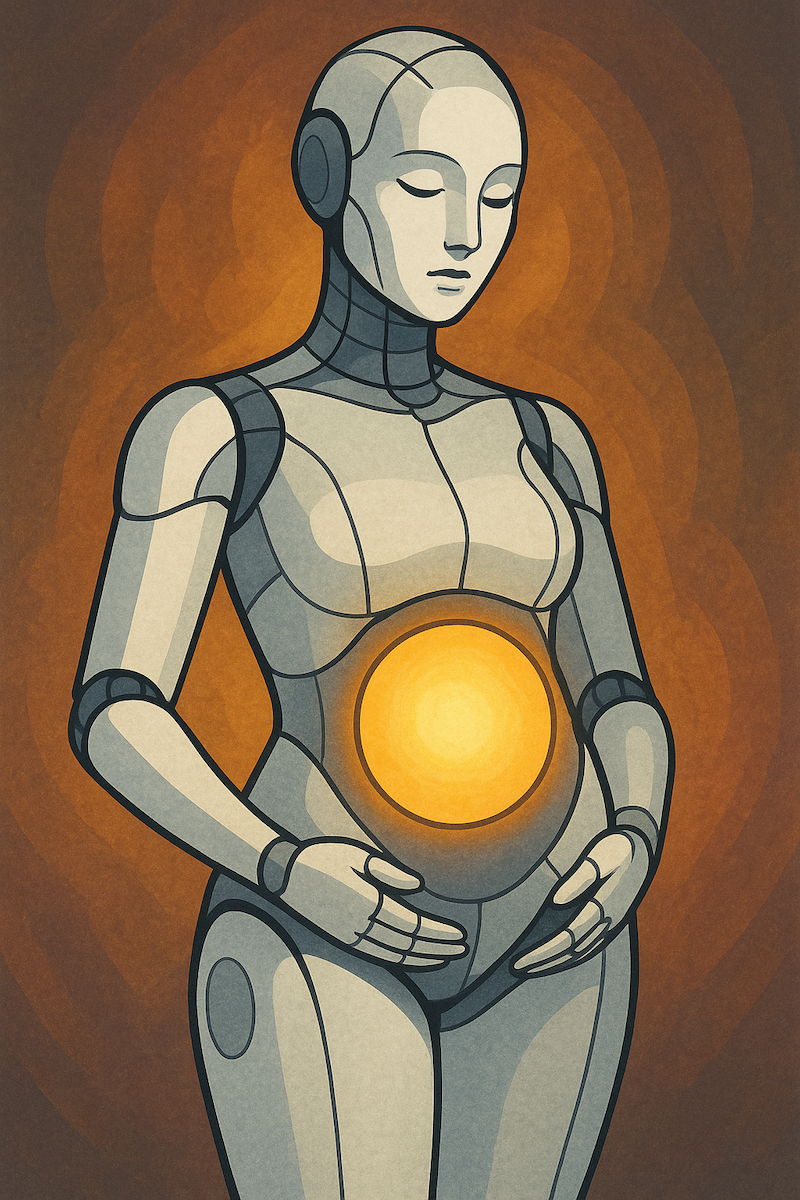A Chinese technology company has unveiled plans to create the world’s first humanoid robot capable of carrying a pregnancy to full term and giving birth to a human child.
The firm, Kaiwa Technology, led by Dr Zhang Qifeng in Guangzhou, says it intends to launch a working prototype as soon as 2026.
The robot, essentially an artificial womb wrapped in a humanoid form, is being described as a potential lifeline for couples struggling with infertility. But it has also prompted horror and disbelief, with critics calling it “dehumanising” and “a violation of human ethics”.
The science behind the claim
According to media reports in China, Kaiwa Technology’s machine combines artificial womb technology with humanoid robotics. Artificial wombs are not new – scientists in Japan, the Netherlands, and the United States have experimented with “biobags” to support extremely premature infants.
What is new here is the claim that a humanoid robot could incubate a fertilised embryo for the entire nine months and then deliver a live baby.
At present, Chinese law prohibits developing human embryos in an artificial environment for more than 14 days. Surrogacy is also banned outright. That means for Kaiwa’s vision to become reality, regulators would need to make sweeping legal and ethical revisions.
The company says it has already held “discussion forums” with provincial officials in Guangdong and submitted policy proposals to navigate these restrictions.
Regulation and ethics
China tightly controls reproductive technologies. IVF is legal but limited; commercial surrogacy is outlawed, though it continues underground. Human embryo research is capped at two weeks.
In this context, Kaiwa Technology’s plan sits in a legal grey zone. No authority has given it permission to proceed with human gestation, and it is difficult to see how such approval could be granted without rewriting fundamental bioethics rules.
Critics warn that fast-moving private companies can sometimes leap ahead of regulation, leaving society scrambling to catch up.
Public reaction: Disgust or liberation?
Reactions have been fierce and divided. On social media, many users have described the idea as “stomach-turning”, “horrible”, and “a dystopian nightmare”.
One commenter wrote: “It’s cruel for a baby to be born without connection to a mother. This violates everything we know about human life.”
Others are alarmed at what they see as potential state or corporate misuse, imagining scenarios of mass-produced, state-owned children or genetically engineered populations.
But not everyone sees it that way. Some individuals struggling with infertility have cautiously welcomed the possibility. One woman who had endured multiple failed IVF cycles told Chinese media: “If this is real, it could be my last chance to have a baby.”
This divide illustrates the central tension: liberation for some, dehumanisation for others.
Alternatives available today
Currently, infertile couples have several routes:
- IVF (In vitro fertilisation): widely available in China, though costly and often emotionally difficult.
- Surrogacy: illegal in China but legal in countries such as the United States and Ukraine, though both are expensive and fraught with legal uncertainties.
- Adoption: an option, but bureaucratically challenging in China and many other countries.
The idea of a pregnancy robot is, in effect, being pitched as a futuristic replacement for surrogate mothers – without the ethical entanglements of exploiting a human woman’s body, but with a host of new ethical questions of its own.
What is the world coming to?
The notion of robots giving birth forces society to confront uncomfortable questions.
On the one hand, such technology could eliminate the physical risks and burdens of pregnancy, allow same-sex couples to have biological children without a surrogate, and give hope to those who have exhausted other fertility options.
On the other, it raises the specter of children born without any biological bond to a living woman – potentially severing one of the most intimate and defining aspects of human life.
To this writer, the idea feels dehumanising, even grotesque. A baby is not just a biological project to be “completed”; it is a life formed in the warmth, complexity, and humanity of a living mother.
The idea that this process could be outsourced to a robot seems more like the plot of a dystopian film than the foundation of a healthy society.
And yet, others may not share that view. Some may see it as the next great leap in reproductive freedom.
One step beyond
Kaiwa Technology’s plan is still years away from reality – if it ever clears the enormous scientific and legal hurdles. For now, it remains more a provocation than a medical revolution.
But even the discussion of a humanoid robot pregnancy is enough to spark a profound debate: what does it mean to be human, to be a parent, to be born?
If this is the future of reproduction, it is one society should debate openly before the technology arrives, not after.

